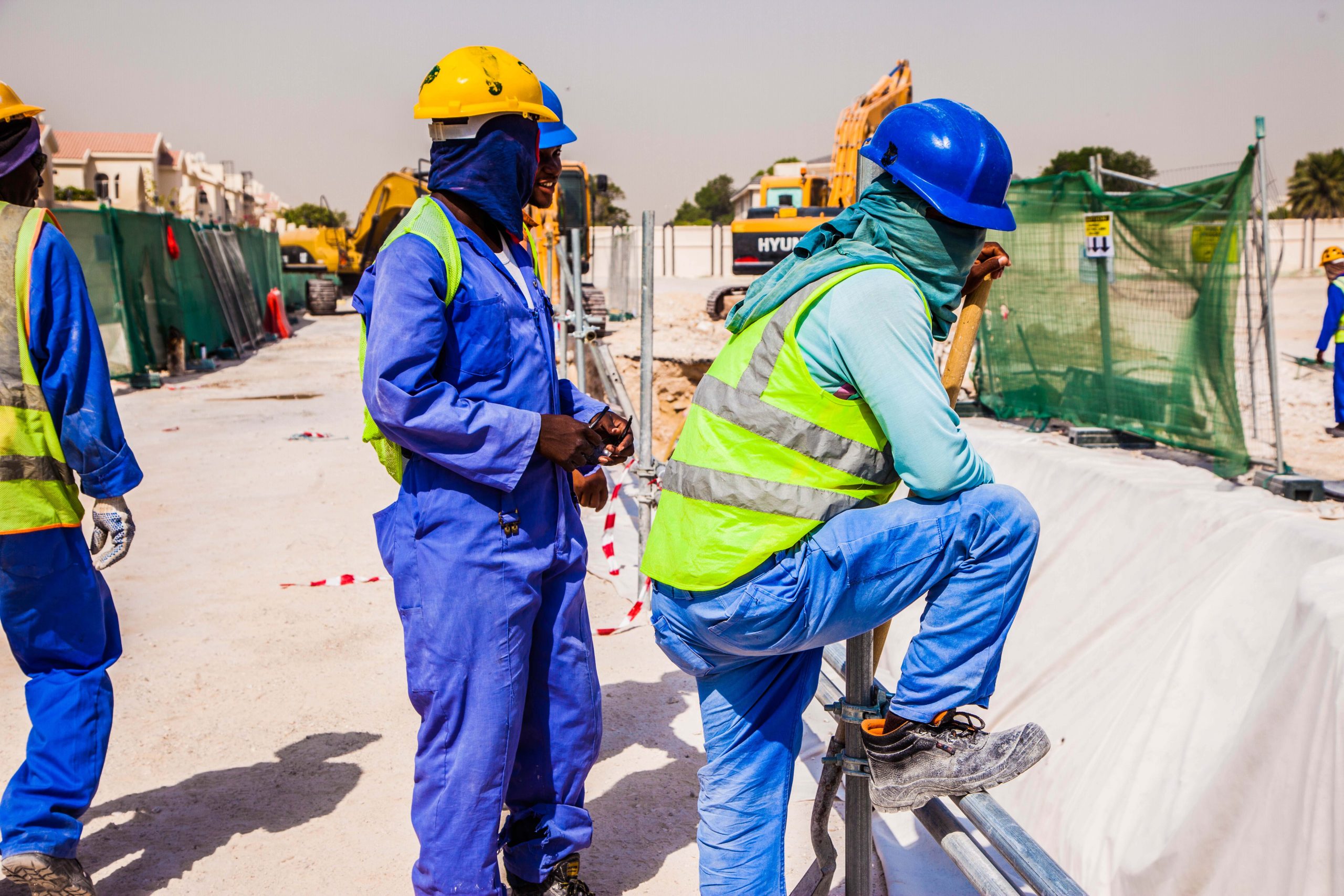
The biggest trade union in the Netherlands has said it may sue FIFA for allegedly failing to demand labor reforms for workers in Qatar.
The FNV issued a legal letter to FIFA’s President Gianni Infantino last night, warning him about the imminent action.
It said it plans to file the lawsuit in a Swiss court on behalf of a Bangladeshi man who worked in Qatar.

According to FNV, Zurich-based FIFA should have insisted Qatar meet “minimum human rights and labor standards” for workers when it was awarded hosting rights for the 2022 World Cup.
Because FIFA chose Qatar without demanding labor reforms, it “acted wrongfully” and “violated the personality rights” of the trade union.
The 123-page legal writ of summons asks for 10,000 Swiss Francs (approximately QR37,000) in compensation and damages for 31-year-old Nadim Shariful Alam.
The man worked in Qatar as an unskilled laborer and is now a member of the FNV trade union.
He was sacked before his contract was finished and said he is in debt in his home country due to recruitment fees.
Change kafala
The FNV, which represents 1.1 million workers in the Netherlands and overseas, is now calling on FIFA to pay Alam the money and “encourage” labor reforms for men working on World Cup-related projects in Qatar.
These include asking authorities not to apply its sponsorship requirements to World Cup workers. Instead, they should be allowed to change jobs and leave Qatar at any time.

Speaking to Doha News, an FNV spokesman said:
“FIFA has three weeks to give Mr. Alam his compensation and to improve the working conditions for the migrant workers in Qatar.”
Otherwise, the trade union will start legal action against FIFA through the courts in Zurich, he added.
While the payout requested for Alam is modest, it could open the flood-gates to many more demands from workers in similar situations.
The letter was written by Prof. Liesbeth Zegveld of Dutch law firm Prakken d’Oliviera and Switzerland-based RA David Husmann, of the Swiss law firm Schadenhanwaelte.
It stated:
“The FNV brings this claim on behalf of thousands of male migrant workers in Qatar who are currently employed under dire circumstances as construction workers in connection with the World Cup in Qatar in 2022.
The Plaintiff brings this suit in the interest of thousands of foreign workers who have to work in bad conditions in relation to the 2022 World Cup in Qatar.”
As the organizing body for world football, FIFA has “full control” of the tournament and could have demanded these changes, it argued.
In debt
Alam worked in Qatar as an unskilled laborer for 17 months for local construction firm Hamad Bin Khalifa (HBK) Contracting Company from August 2014 to January of this year.
He paid a recruitment agency in Dhaka 350,000 Taka (around QR15,000) to come to Qatar, which he raised by taking a loan and mortgaging family land in Bangladesh.
He was due to work in Qatar on a two-year contract, but this was cut short by around six months when he was fired, the letter stated.
Alam earned QR800 a month in wages and food allowance working at a seaport in the north of Qatar for HBK.
The firm is working on several key projects in the country, including the Doha Metro Green Line and the World Cup stadium in Al Wakrah.

“As such, it can be assumed that the work Alam conducted for HBK served to facilitate the construction of those mega-projects,” the letter stated, adding:
“Plaintiffs assert that in principle all construction-related work conducted by migrant workers in Qatar – particularly when they are employed by companies with contracts for World Cup related projects – must be considered to be work connected to the World Cup event.”
It claimed when Alam was fired, he was only reimbursed 10 percent of the money he paid to recruiters, and was not allowed to look for another job in Qatar.
Instead he was returned to Bangladesh, and is in debt due to the loan and mortgages he took out.
The letter called for reimbursement of the rest of his recruitment fee, CHF5,000 (QR18,600) in “moral damages” and a further CHF1,386 (QR5,100) as compensation for the remainder of his contract.
Critics’ demands
Qatar has come under fire from several international organizations for workers’ rights and conditions in recent years.
In December, it will introduce changes to its kafala system with a new law (Law No. 21 of 2015 on the entry, exit and residency of foreign nationals). The legislation should make it easier for some residents to change jobs and leave the country.
However, it stops short of abolishing the much-decried exit permit and no-objection certificate for expats.

Qatar has also introduced the Wage Protection System, which requires employers to pay workers directly into their bank accounts.
Additionally, some organizations have “workers’ charters” requiring contractors to provide minimum living and working conditions for staff employed on their projects.
These include Qatar Foundation and the Supreme Committee for Delivery and Legacy (SCDL) – the local organizing body for Qatar’s World Cup preparations.
However, critics – including the FNV – said this is not enough.
FIFA has not yet responded to the union, and Doha News has asked the SCDL for a comment.
Thoughts?







